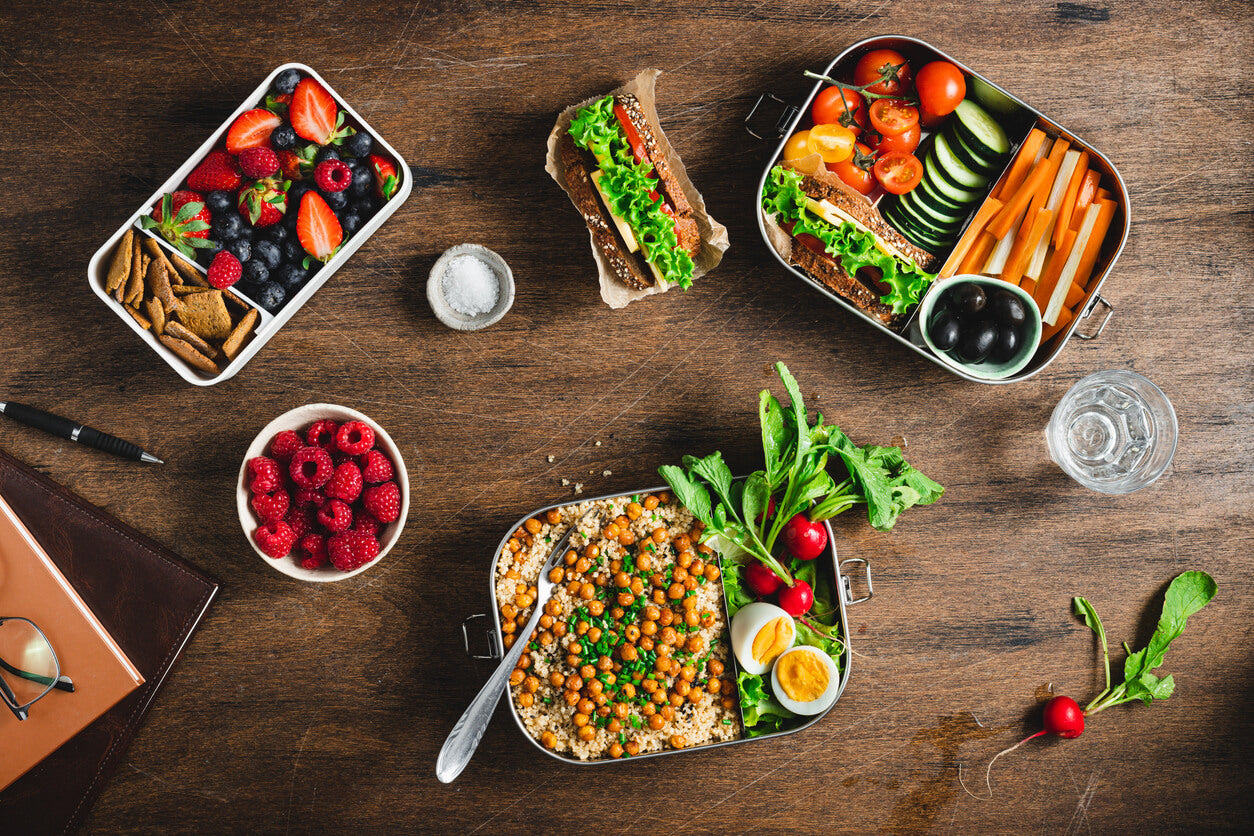And you're not alone. 53 percent of women in Germany are overweight, and the figure for men is over 67 percent (including obesity).* A person is considered overweight if he or she has a Body Mass Index (BMI) of over 25. Obesity begins at a BMI of 30.
BMI is calculated by dividing your weight in kilograms by your height in meters multiplied by yourself. E.G.: Body weight 60, height 1.65 m = 60 : (1.65 x 1.65) = 22.
The abdominal circumference should be less than 88 centimeters for women and 102 centimeters for men. The best way to measure it is with a normal tape measure in the morning and at navel height in the exhaled state.
You can also compare the abdominal girth with the waist-to-hip ratio (WHR) (abdominal girth divided by hip girth) and also the waist-to-height ratio (WHtR) (abdominal girth divided by height). For those under 40, overweight starts at a value of 0.51. Those over 40 can have 0.01 points more per year of life, up to a maximum value of 0.61.

The cause: too much energy - too little exercise
Dr. Stefanie Gerlach of the German Obesity Society makes it clear that the increasing obesity in Germany and Europe is a "biological response to a living environment that promotes obesity. "** There are, of course, individual causes (genetic factors, family socialization), but the main causes are an unhealthy diet, too little exercise, chronic stress and insomnia.This means that in most cases overweight is caused by a positive energy balance. So when you take in more energy than you consume, your body stores the excess energy "for times of need" in the form of fat tissue. 7000 excess calories the body turns into about 1 kg of fatty tissue!
Your body has a certain Basal metabolic rate, which is an amount of energy it needs to survive, even when you're sleeping or not moving. This caloric need must be satisfied or your body cannot maintain its functions. Your total caloric need (total metabolic rate) is then the energy you consume through exercise and work in addition to your basal metabolic rate.
Daily caloric needs vary greatly from person to person and depend on age, gender, size, and exercise habits.
The rule of thumb for calorie consumption at rest(basal metabolic rate)for men is: Basal metabolic rate = [body weight in kg] x 24 x1.0. For women: Basal metabolic rate = [body weight in kg] x24 x0.9.
In terms of total metabolic rate, for example, a female office worker weighing 60 kg consumes about 2,000 calories in 24 hours, while her male counterpart weighing 80 kg consumes 2,800 calories. However, if this man does a lot of sports in his free time, he may consume significantly more calories per day, because muscle mass consumes more calories than fat.

The solution: eat healthier - move more
A healthy diet is therefore one of the main factors in combating excess weight. But that doesn't mean you have to run around with a growling stomach. Quite the opposite. Because that's when the cravings hit and you're more likely to opt for a high-calorie snack than a healthy meal.Rather, it's about making sure you choose the right foods. This is because foods stimulate fat metabolism and digestion very differently, and also always have a different effect on our sense of hunger, hormones, or even how many calories we burn. Healthy foods contain lots of vitamins, minerals and fiber and little sugar, saturated fat and salt. In general, the following foods are good for weight loss:
In a balanced diet, the three main sources of energy - protein, fat and carbohydrates - should be on the menu in approximately this ratio: 15% protein, 30% fat and 55% carbohydrates. If you want to lose weight, a daily deficit of 200 to 250 calories is enough. In this way you can lose about 1 kilo in a week.

Tricks & tips for a healthy diet in the office

Tricks & tips for more movement in the office
The second component through which you can actively influence your energy balance is the complex of muscles and movement. We move far too little, sit too long, and moreover, we move incorrectly.Every movement consumes energy. Sports activities are therefore ideal to help you burn more calories, boost your metabolism and reduce fat deposits. In addition, sports help to build muscle. Muscle is the number one fat killer, and each muscle fiber increases your basal metabolic rate, which is the amount of energy your body needs at rest to maintain all its functions. This is called "losing weight while you sleep".
But what can you do in the office to move more and activate your muscles?
So there's no need to embark on a huge sports program. Smaller, regular exercise sessions and active office furniture also boost your metabolism, activate your muscles and help you burn more calories and stay fit. Give it a try!
Disclaimer: Please note that we are not physicians and do not offer medical advice. The content contained in this article is for general information only and cannot replace a specialist diagnosis and treatment. If you have any doubts or questions, always consult your treating physician.

*https://de.statista.com/themen/1468/uebergewicht-und-adipositas/
**https://www.deutschlandfunkkultur.de/uebergewicht-in-deutschland-ein-schwer-wiegendes-problem-100.html
